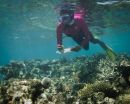(Press-News.org) Office workers should be on their feet for a minimum of 2 hours daily during working hours, recommends the first ever UK guidance designed to curb the health risks of too much cumulative sitting time, and published online in the British Journal of Sports Medicine.
This daily quota should eventually be bumped up to 4 hours a day, breaking up prolonged periods of sitting with the use of sit-stand desks, standing based work, and regular walk-abouts, it says.
The guidance, which evaluates and distils the available evidence, was drawn up by a panel of international experts, at the behest of Public Health England and a UK community interest company (Active Working CIC).
It aims to make some core recommendations, amid the growing body of research linking prolonged periods spent seated?as opposed to being generally physically inactive?with a heightened risk of serious illness and premature death, and the burgeoning market of workplace products developed in response to the emerging evidence.
The authors point out that in the UK sedentary behaviour now accounts for 60% of people's waking hours and for 70% of those at high risk of a long term condition.
"For those working in offices, 65-75% of their working hours are spent sitting, of which more than 50% of this is accumulated in prolonged periods of sustained sitting," they write.
"The evidence is clearly emerging that a first 'behavioural' step could be simply to get people standing and moving more frequently as part of their working day," they say, adding that this is likely to be more achievable than targeted exercise.
Based on the current evidence they recommend:
2 hours daily of standing and light activity (light walking) during working hours, eventually progressing to a total of 4 hours for all office workers whose jobs are predominantly desk based
Regularly breaking up seated based work with standing based work, with the use of adjustable sit-stand desks/work stations
Avoidance of prolonged static standing, which may be as harmful as prolonged sitting
Altering posture/light walking to alleviate possible musculoskeletal pain and fatigue as part of the adaptive process
As well as encouraging staff to embrace other healthy behaviours, such as cutting down on drinking and smoking, eating a nutritious diet, and alleviating stress, employers should also warn their staff about the potential dangers of too much time spent sitting down either at work or at home
Some companies have already invested time and money creating a more active working environment for their staff, but those that haven't should evaluate how best to achieve the recommendations, they say.
This could include deciding when and how staff take breaks which involve standing and movement; and desk designs and technologies that allow employees to do their job more easily either at their desk or from other locations in the office while standing up, they suggest.
The authors acknowledge that much of the evidence they draw on for their recommendations is based on observational and retrospective studies, which make it difficult to prove direct cause and effect.
Nevertheless, they emphasise: "While longer term intervention studies are required, the level of consistent evidence accumulated to date, and the public health context of rising chronic diseases, suggest initial guidelines are justified."
INFORMATION:
Griffith University's Institute for Glycomics has developed a groundbreaking, combination vaccine that may finally beat Streptococcus A infections.
Human trials are set to begin, early as next year, for the vaccine which combines the protein, SpyCEP, with a previously developed vaccine J8-DT.
Infections caused by Streptococcus pyogenes are responsible for the deaths of almost 500,000 people worldwide each year. It is particularly prevalent in developing countries and Indigenous populations, including Aboriginal people and Torres Strait Islanders.
Infections can ...
WINSTON-SALEM, N.C. - June 1, 2015 - Researchers at Wake Forest Baptist Medical Center report progress in their quest to build replacement kidneys in the lab. The teams' goal is to make use of the more than 2,600 kidneys that are donated each year, but must be discarded due to abnormalities and other factors. The scientists aim to "recycle" these organs to engineer tailor-made replacement kidneys for patients.
"We believe the two studies we are reporting provide critical information to the booming field of organ bioengineering as it applies to the kidney," said Giuseppe ...
Soil erosion that occurs in rainy seasons leads to a significant amount of carbon being released into the atmosphere, a new study shows.
Investigators who analyzed 240 runoff plots from different regions of the world found that organic carbon losses from soils corresponds to about one-sixth of annual fossil fuel-induced carbon emissions with highest rates for semi-arid soils followed by tropical soils and temperate soils.
"The organic carbon lost from soils is more likely to reach the atmosphere under semi-arid sandy soils of weak structure compared to clayey tropical ...
In a study of the effects of increasing climate temperatures on the toxicity of 3 contaminants in different fish species, researchers found that all pesticides and industrial contaminants studied--endosulfan, chlorpyrifos, and phenol--became toxic in the upper 5oC range of species' temperature tolerance.
"Within this narrow range of temperatures, other simultaneous changes--such as reduced shading of the water surface as a result of clearing vegetation or increased toxicant exposure--may combine to significantly increase the vulnerability of fish to global warming," ...
It's time for helicopter parents to land and stay grounded.
New research by professors at Brigham Young University revealed that parental warmth cannot neutralize the consequences of helicopter parenting. Additionally, a lack of warmth makes the negative effects worse.
Such negative effects include lower self-worth and higher risk behavior, such as binge drinking.
"From our past work, we thought there might be something positive about helicopter parenting under certain conditions, but we're just not finding it," study author Larry Nelson said.
The study, published ...
In a population of Congo Basin foragers called the Aka, 67% of men--but only 6% of women--use cannabis, and the practice seems to protect against infection with parasitic worms.
The large sex difference, which is also seen in tobacco use, might be a consequence, in part, of women's avoidance of potentially toxic substances during childbearing years.
The results provide evidence of a link between parasite infection and drug use, two of the developing world's great health problems, and they highlight the need for more research on the high rate of substance use in Aka ...
New recommendations offer insights on strategies for treating infants with seizures. In an Epilepsia report, child neurologists who are members of the International League Against Epilepsy note that intervening at the time of a febrile seizure does not alter the risk for subsequent epilepsy, and there is no evidence to support the use of antiepileptic drugs for simple febrile seizures. However, recurrent seizures warrant an urgent assessment, and a variety of antiepileptic drugs may benefit these patients. Unfortunately, there is no high level evidence to support the use ...
COLUMBIA, Mo. -- For inexperienced investors with little knowledge about the investment process, it may be important to invest in funds that do not require much maintenance. Now, a researcher at the University of Missouri has found that investors with less investment knowledge are more likely to invest in target-date funds (TDFs). Michael Guillemette, an assistant professor of personal financial planning in the MU College of Human Environmental Sciences, says this is a positive trend which will help inexperienced investors invest safely without risking significant losses ...
Collegiate women who wore shoes with 10 cm high heels more than 3 times per week to their classes developed an imbalance of 4 functional ankle muscles. While wearing high-heeled shoes appeared to strengthen ankle muscles at first, prolonged use eventually caused an imbalance, which is a crucial predictor of ankle injury.
"Therefore, it is clinically important for wearers of high heels to regularly perform ankle strengthening exercises, such as heel walking, toe tappers, and heel raises, and to limit the frequency of wearing high-heeled shoes as preventative measures," ...
Recent forecasts on the impacts of climate change on the world's coral reefs--especially ones generated from oceanic surface temperature data gathered by satellites--paint a grim picture for the future of the "rainforests of the sea."
A newer and more complex model incorporating data from both environmental factors and field observations of coral responses to stress provides a better forecasting tool than the more widely used models and a more positive future for coral reefs, according to a new study by the Wildlife Conservation Society and other groups.
The study ...

